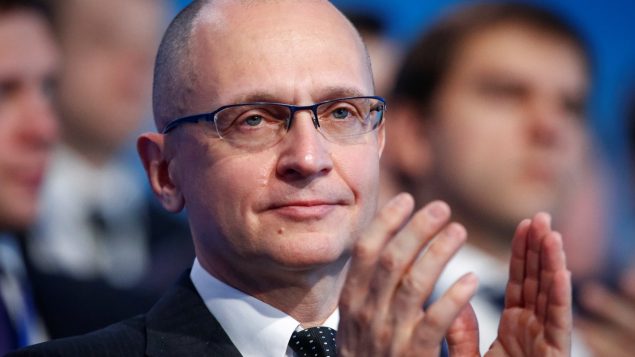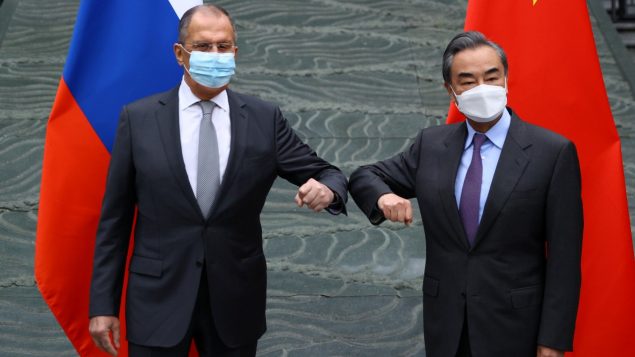Foreign Affairs Minister Marc Garneau announced new sanctions on Wednesday against nine top Russian officials “in response to gross and systematic violations of human rights in Russia.”
Garneau said the sanctions are part of a concerted diplomatic effort with allies to bring pressure on senior figures in President Vladimir Putin’s administration involved in the attempted murder of Russian opposition figure Alexey Navalny and his subsequent prosecution, and the crackdown on thousands of Navalny supporters.
“The Russian government has repeatedly shown its unwillingness to respect the basic rights of its own people and address concerns raised on multiple occasions by the international community,” Garneau said in a statement.
“Alongside our partners, Canada will continue to increase pressure on the Russian government to unconditionally release Mr. Navalny and his supporters who have been unlawfully detained. Russia’s gross human rights violations will not go unanswered.”
The sanctions target not only the heads of Russia’s security intelligence service, the federal penitentiary service, the prosecutor general, and high-ranking defence officials, but also top aides to Putin, including Sergey Kiriyenko.

Sergey Kiriyenko, first deputy chief of staff of the Kremlin administration attends the United Russia party congress in Moscow, Russia, Jan. 22, 2017. (Sergei Karpukhin/REUTERS)
Kiriyenko, who serves as First Deputy Chief of Staff of the Presidential Executive Office, is a former prime minister once considered a rising star in the cohort of young liberal reformers recruited by President Boris Yeltsin to transform Russia’s post-Soviet economy.
The sanctions freeze any assets those officials have in Canada. They also ban them from travelling to Canada and forbid Canadian citizens and businesses from providing them with financial services.
In a statement released on Twitter, the Russain embassy in Canada condemned the sanctions as “absolutely illegitimate under international law and meaningless.”
The sanctions are causing “additional damage to already problematic bilateral relations” and “will not remain without an adequate response,” the embassy added.
“Instead of teaching and moralizing others, Ottawa should think of its own worrying human rights record, including systematic violence against Indigenous people and continuing racial discrimination,” the statement said.
Statement of the Russian Embassy in #Canada on Ottawa’s illegal sanctions #cdnpoli pic.twitter.com/kSe7L8ip1S
— Russia in Canada (@RussianEmbassyC) March 24, 2021
The ratcheting up of sanctions against the Kremlin is happening in the context of ever-diminishing diplomatic ties between the West and Russia.
Last week, Moscow recalled its ambassador to Washington amid rising tensions with President Joe Biden’s administration, which has imposed its own sanctions on the same Russian officials blacklisted by Ottawa over Navalny’s poisoning and incarceration.
Russia and China bracing for more sanctions
Amid growing tensions in Eastern Ukraine that threaten to spill over into another full-scale conflict between Ukrainian forces and Russian-backed rebels, Russian officials are bracing for more Western sanctions.
Speaking at a press conference with his Chinese counterpart Wang Yi in Beijing on Tuesday, Russian Foreign Affairs Minister Sergey Lavrov said Russia and China are working on developing alternatives in case one of them or both got shut out of the Western banking and financial transactions systems.
“The United States, Europe and the West in general are, in fact, replacing diplomacy, the art which they are losing, with the steps seeking to impose their own rules on everyone else,” Lavrov said. “In their opinion, these rules rather than international law must underlie the international order. Sanctions are among these rules.”

Russia’s Foreign Minister Sergei Lavrov and China’s State Councilor and Foreign Minister Wang Yi wearing protective face masks pose for a picture during a meeting in Guilin, China March 22, 2021. (Russian Foreign Ministry/Handout via REUTERS)
One of the few remaining areas of cooperation between Russia, Canada, the U.S. and other Western countries is the Arctic.
In May, Russia assumes the two-year rotating chairmanship of the Arctic Council. The Arctic Council is an international forum that focuses on environmental protection and sustainable development in the North.
Iceland, which has chaired the Arctic Council over the last two years, will hold its biennial ministerial meeting in May. Representatives of the eight Arctic States and six Arctic Indigenous groups are expected to attend in person, giving Garneau and U.S. Secretary of State Antony Blinken their first chance to meet with Lavrov in person.







For reasons beyond our control, and for an undetermined period of time, our comment section is now closed. However, our social networks remain open to your contributions.